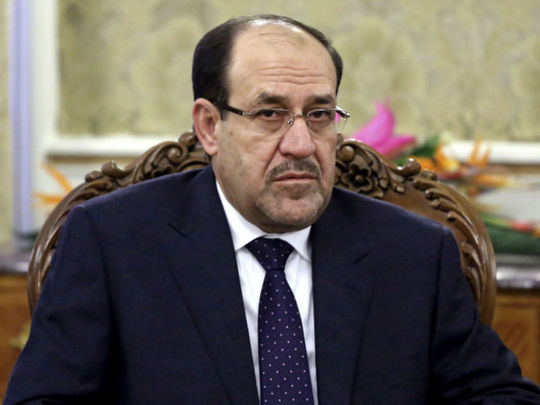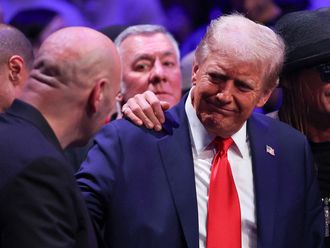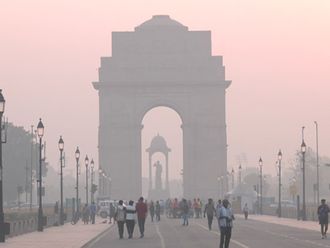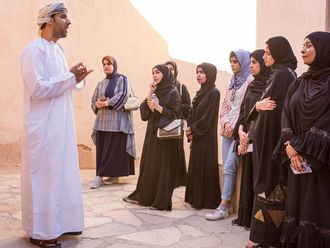
The rapid collapse of the Iraqi military and police force in the city of Mosul and other Sunni towns in the provinces of Anbar, Diyala and Salah Al Deen, has stunned some and perplexed others. Yet, the dominant narrative in western media and political literature is that the Islamic State of Iraq and the Levant (Isil) has become so alarmingly powerful that it has managed to defeat and drive out three full divisions of the Iraqi army, equipped with state-of-the-art American military hardware to ensure control of Mosul and adjacent Sunni provinces. Most have chosen to ignore the fact that the success of Isil has much to do with local forces and tribes who have either facilitated Isil or opted not to fight the group’s incursion into Mosul. Most often, local tribes have fought alongside Isil against government positions. In a city of almost two million, had Isil not received any local sympathy, it would have been unable to rout the Iraqi forces in the area with only 1,000 to 2,000 fighters.
Indeed, the withdrawal of US forces from Iraq in 2011 and the weakening grip of the Bashar Al Assad regime over most of the eastern and northeastern parts of Syria saw the rebirth of Al Qaida, injected life into Isil, and formed a new, more dangerous generation of jihadists. Isil exploited both, the Syrian revolution and the protest movements in Iraq’s Sunni provinces to advance its cause and reassemble its forces.
It is estimated that the group’s manpower stands at 15,000 fighters in Syria and Iraq and attracts a large proportion of foreign fighters. Having seized a number of oil-and-gas fields, following its intervention in Syria, the group’s resources have grown considerably.
Yet, whatever the strength of Isil may be, it does not allow it to control an area the size of Jordan (100.000 square kilometres). In fact, the political and economic grievances in Iraq and Syria have created sympathy with the cause of extremism. The authoritarian and sectarian character and polices of the Iran-backed Al Assad and Nouri Al Maliki regimes, in Syria and Iraq, respectively, combined with the transformation of the conflict in Syria and Iraq from a social protest movement into a sectarian conflagration, has also provided an ideal environment for recruitment of terrorists and boosted the group’s ideological appeal.
Therefore, the collapse of the Iraqi army and security forces in Mosul was not the making of the Isil alone. Rather, it has resulted from the frustration and anger of the Sunni provinces. Their determination to expel Al Maliki’s forces superseded their hatred for Isil’s policies and actions. Al Maliki’s flagrant sectarian policies have led Sunni politicians, who did not join the protests, to lose their credibility and transformed the non-violent protest movement that began at the end of 2012 into an armed resistance. The authoritarian, sectarian and corrupt policies of the Al Maliki government have humiliated the Sunni population, whose lack of participation in the political process has only brought further marginalisation and fanned the feelings of oppression and discrimination.
Resentment grew stronger after Al Maliki’s forces stormed the peaceful sit-ins in Hawija, causing the deaths of 50 protesters and injuring more than a hundred on April 23, 2013. Under the pretext of law enforcement and the legitimate use of force to maintain social peace and order, Al Maliki has used all possible means to exclude his political opponents and consolidate his own authority. In addition to being the prime minister, he has retained the portfolios of defence, interior and national security and controls the interpretation and enforcement of all laws. Anti-terror legislation has become a weapon to eliminate political rivals and enhance his dictatorial rule. These policies targeted key Sunni leaders such as the vice-president Tariq Al Hashemi, who was changed with terrorist activities; finance minister Rafie Al Issawi; speaker of the parliament, Osama Al Nujaifi; and MP Ahmad Al Alawani, who was arrested and whose brother was killed. The law for accountability and justice, which replaced the de-Baathification law, has also been used to sideline prominent Sunni politicians and exclude them on the grounds that they had links with the dissolved Baath party.
Once the situation exploded in Anbar, wherein local tribal forces took control of Fallujah and Ramadi, forming military councils — made up mainly of members of the dissolved Iraqi army — remnants of the armed Iraqi resistance against the US occupation reestablished themselves and joined the fray. These were the forces that drove the Al Maliki’s army out of most of the Sunni areas and took control, not Isil. Al Maliki and his key external supporters, i.e. Iran and the US, loath to admit this fact, because it condemns them both — the first, for supporting disgusting sectarian policies in Iraq; and the second, for covering them up.
Dr Marwan Kabalan is a Syrian academic and writer.











